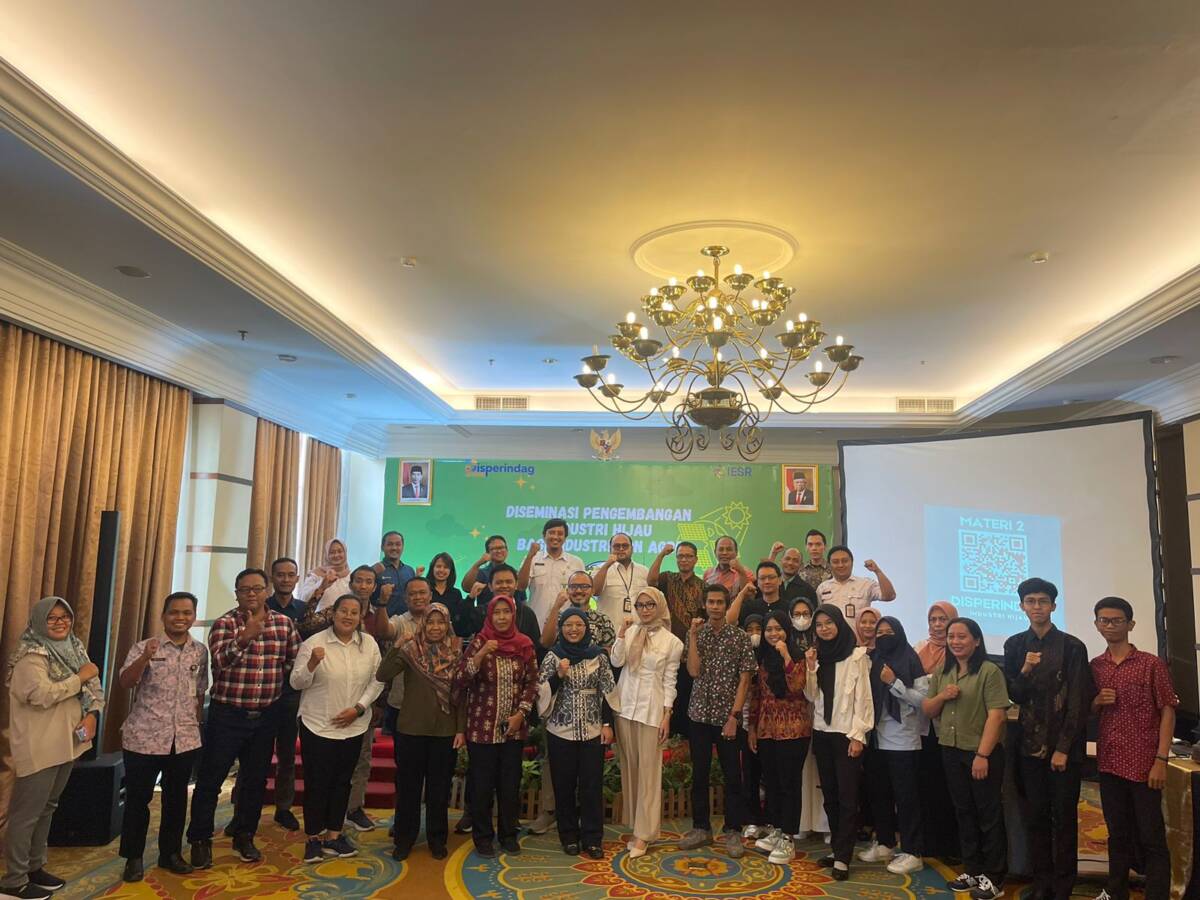Surakarta, August 28, 2024 – In the midst of an increasingly apparent climate crisis, the growth of green industries that prioritize sustainability needs to be a major focus in economic development in Central Java. The province has great potential to develop green industries due to its rich natural resources, including renewable energy, such as solar energy.
To strengthen collaboration and initiation in green industry development, the Institute for Essential Services Reform (IESR) together with the Department of Industry and Trade (DISPERINDAG) organized a two-day Non-Agro Green Industry Dissemination, on Tuesday (27/8/2024) and Wednesday (28/8/2024). This dissemination activity is part of Central Java’s big vision to accelerate the transition to green energy and industry, with the hope that the province can become a model for other regions in applying the principles of green industry in the non-agro sector.
Bambang Yunianto, Secretary of the Surakarta City Cooperative, Small and Medium Enterprises and Industry Agency, emphasized that this dissemination activity is a crucial step in mobilizing green industry in Central Java. This green industry practice supports efforts to shift from the use of fossil energy to the use of renewable energy.
“We hope that through this activity, the development of an environment-based industry that is not only efficient in the use of resources but also able to inspire other sustainable development can be realized. In particular, the implementation of green industry for batik SMIs in Laweyan District can be a real example of how innovative technology, energy efficiency, environmentally friendly resource management, and regulatory compliance can have a positive impact,” said Bambang.
Sri Gadis Pari Bekti, Head of the Decarbonization Team, Center for Green Industry, Ministry of Industry, emphasized the importance of efficiency in the production process to reduce environmental impact. With this approach, waste can be minimized, and the impact of environmental damage can be reduced. This principle is not only beneficial for the environment but also for society, by encouraging economic growth that does not damage the balance of the ecosystem.
“Prioritizing efficiency and effectiveness in the use of resources in a sustainable manner in the production process, is able to harmonize industrial development with environmental sustainability and provide benefits to society. “ said Sri.
Meanwhile, Faricha Hidayati, Coordinator of the Industrial Decarbonization Project, IESR, added that industrial decarbonization is needed to limit the increase in carbon emissions, which is projected to continue to rise along with economic growth. Through raw material and energy efficiency, renewable energy implementation, and waste management, companies can see a positive impact on their cash flow. It also opens up opportunities for companies to continue to adapt and thrive in a market that increasingly prioritizes sustainability.
“Industrial decarbonization efforts need to be accompanied by building a green industrial ecosystem within the framework of regulations and standards, provision of green energy and low-carbon technology. With the right policy support and active participation from stakeholders, Central Java has opportunities in the development of green industry,” Faricha said.

